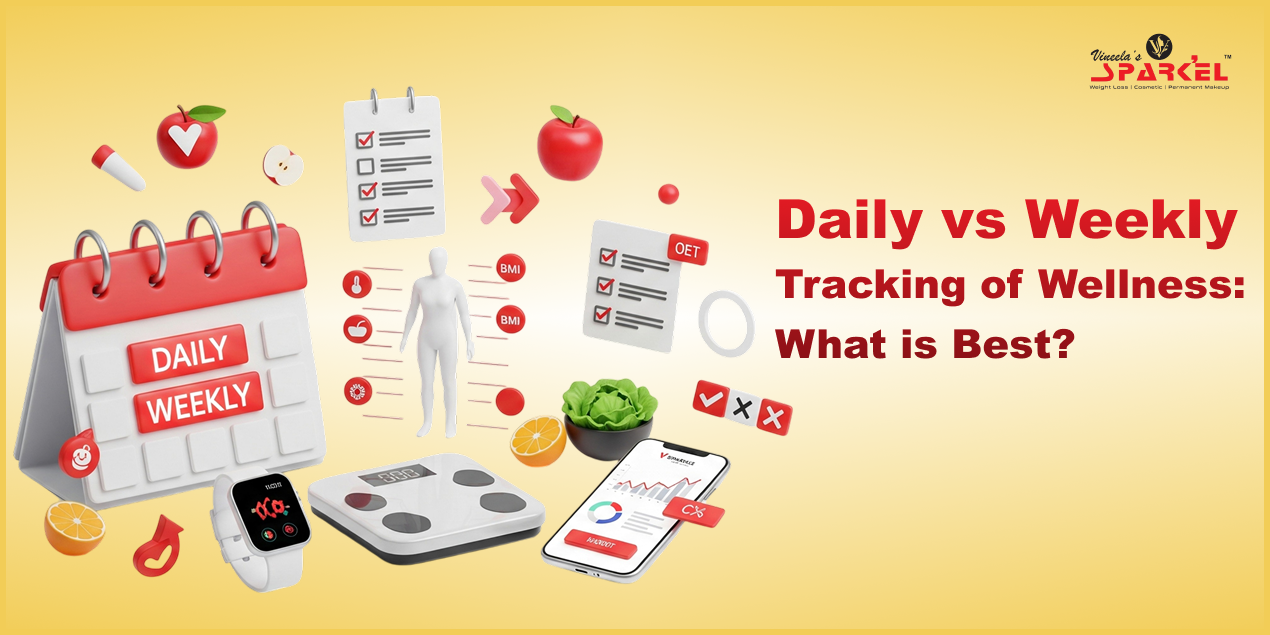Daily vs Weekly Tracking of Wellness: What is Best?
Wellness habit tracking has to be one of the best practices to maintain a healthy life. Monitoring diet, physical fitness, or even mental wellness, whatever it may be, keeping a track helps one stick to habits and identify patterns that influence well-being in general. Since there are several tracking methods, whether daily or weekly tracking, among others, it is crucial to identify what works best for various individuals. By trying out habit trackers, mood trackers, health journals, and fitness trackers, you can select a method that suits your needs and your schedule, along with fitting your well-being goals.
The Power of Daily Tracking
It enables you to track your habits, mood, and health metrics on a daily basis. You can use a habit tracker to document some activity such as water consumption, physical exercise, or meditation practice on a daily basis. It serves the purpose of maintaining consistency and robust routine because constant daily monitoring constantly reminds you of what works and what does not. In the same manner, monitoring your mood on a daily basis identifies what stresses you, anxious you, or saps your energy and permits immediate corrective measures like relaxation training or dietary change.
The health journal from day to day fills the gaps of the trackers by permitting end-of-day reflection. Recording what you ate, how much you exercised, or how you felt mentally is a true picture of your lifestyle. In fitness clubs such as V Sparkel, day-by-day monitoring is mostly advised under customized Weight loss programs , as this helps nutritionists keep up with their clients closely and adapt diet regimens. By tracking small everyday habits, one can accumulate healthy long-term practices.
Benefits of Weekly Monitoring

Weekly tracking, however, is tracking patterns over a couple of days and looking at them from a wider view of health and wellness gain. The week-by-week progress tracker employed can detect strength, endurance, or weight gain change without being swamped by day-to-day fluctuation. For example, a small amount of weight gain or dip in energy on any given day is not important when plotted within the week. It takes the immediacy from tracking day-by-day, but still gives worthwhile insights into the long term.
Weekly monitoring also appeals to those who feel that daily recording or keeping a journal is burdensome. Monitoring moods for a week allows identifying cyclical stress, fatigue, or motivational patterns, which aid in changing habits before the fact. Weekly health diaries where you can review habits and plan for next week are conducive to strategic outcomes over reacting. By checking patterns on a weekly basis, you can stay on course without being paralyzed by burnout from over-monitoring.
Choosing the Most Appropriate Method for You
Tracking every day or every week is dependent on personal choice, lifestyle, and goals for wellness. Those with certain short-term goals, like establishing a new habit or weight loss, are more likely to be helped by a daily habit tracker and fitness tracker of progress. Monitoring on a regular basis builds responsibility and aids in identifying rapidly what is effective or requires modification. As an example, tracking daily calorie intake improves weight program adherence and overall motivation.
Individuals with long-range health objectives or hectic schedules can opt for weekly recording for a hassle-free, long-term experience. Examining week-long frequencies on mood, activity, or food habits gives a general overview of the progress without the constant bother of recording small things. Alternating between both works as well; weekly review for overall trends and daily recording for key habits keep the system in balance and contribute to routine, awareness, and long-term health improvement. V Sparkel usually suggests a mix of weekly and daily tracking in its well-being programs to attain optimal results and keep the members motivated.
Conclusion
Weekly and daily wellness tracking both have their own strengths. The best approach will be based on individual intentions, lifestyle, and preference for routine. Application of habit trackers, mood logs, health journals, and fitness progress trackers can greatly increase self-awareness, integrity, and global wellness. V Sparkel supports personal tracking solutions that easily fit into your lifestyle and enable you to gain sustainable wellness and make quantifiable progress in your healthcare objectives.
FAQs
1. How long should I track my wellness habits?
Track regularly for at least a period of 4–6 weeks in an attempt to observe patterns and make meaningful adjustments to lifestyle behaviors.
2. What is daily wellness tracking?
Daily monitoring of wellness is maintaining an eye on your routines every day to get immediate feedback and stay accountable.
3. What are the benefits of weekly monitoring of wellness?
Weekly monitoring gives a flexible view, reduces overwhelm, and helps identify overall patterns of improvement.
